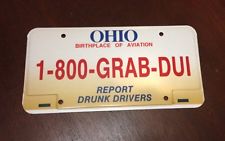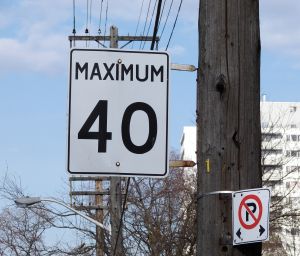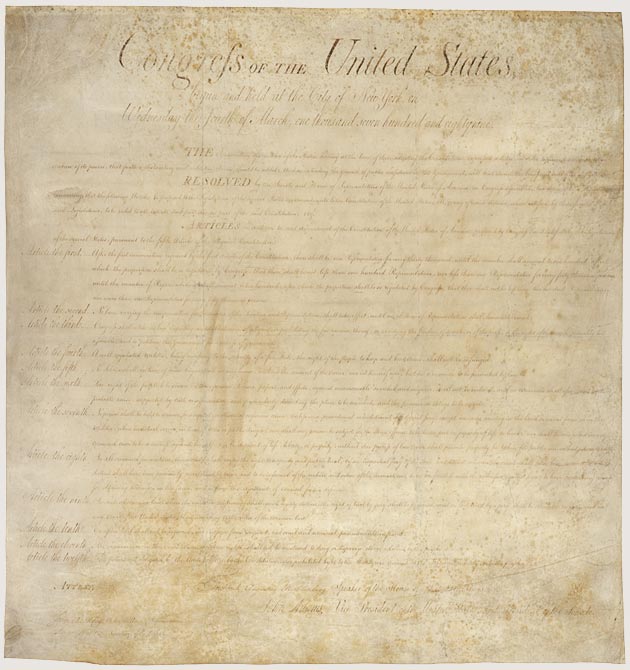 We are all urged to call the police if we suspect someone is driving under the influence. This message comes to us in radio and television commercials, on billboards, and on cruiser license plates: 1-800-GRAB-DUI. If someone makes the call, when should the police be permitted to stop the driver based on that informant’s tip alone? This question is a hot topic in Ohio DUI/OVI law this year. Two Ohio appellate courts decided ‘informant tip’ cases last month, and the United States Supreme Court decided one earlier this year.
We are all urged to call the police if we suspect someone is driving under the influence. This message comes to us in radio and television commercials, on billboards, and on cruiser license plates: 1-800-GRAB-DUI. If someone makes the call, when should the police be permitted to stop the driver based on that informant’s tip alone? This question is a hot topic in Ohio DUI/OVI law this year. Two Ohio appellate courts decided ‘informant tip’ cases last month, and the United States Supreme Court decided one earlier this year.
Articles Posted in DUI/OVI Constitutional issues
Hold The Phone…But Don’t Search It Without A Warrant
 If a driver is pulled over and charged with a criminal offense, can the police search through the data on the driver’s cell phone? That question was recently addressed by the United States Supreme Court. The case does not directly involve a DUI/OVI, but it’s definitely worth reporting in this blog. This is a significant case in the area of search and seizure law, and there are frequently search and seizure issues in DUI/OVI cases.
If a driver is pulled over and charged with a criminal offense, can the police search through the data on the driver’s cell phone? That question was recently addressed by the United States Supreme Court. The case does not directly involve a DUI/OVI, but it’s definitely worth reporting in this blog. This is a significant case in the area of search and seizure law, and there are frequently search and seizure issues in DUI/OVI cases.
Can Officers Ignore Evidence Of Sobriety When Arresting Someone For DUI/OVI In Ohio?
 What does it mean when the law says an officer must have ‘probable cause’ to arrest a person for a DUI/OVI? Common sense tells us the evidence observed by the officer must lead to the conclusion that the person is probably under the influence. Common sense and case law tell us the officer must consider all of the evidence in making the arrest decision. A recent case in the U.S. Sixth Circuit Court of Appeals addresses this issue and implies that evidence of sobriety has little meaning in the probable cause determination.
What does it mean when the law says an officer must have ‘probable cause’ to arrest a person for a DUI/OVI? Common sense tells us the evidence observed by the officer must lead to the conclusion that the person is probably under the influence. Common sense and case law tell us the officer must consider all of the evidence in making the arrest decision. A recent case in the U.S. Sixth Circuit Court of Appeals addresses this issue and implies that evidence of sobriety has little meaning in the probable cause determination.
Court Concludes Traffic Stop Was Not Justified By Visual Speed Measurement In Ohio DUI/OVI Case
 In most Ohio DUI/OVI cases, the evidence includes police officer testimony and police cruiser video. Officer testimony is sometimes not corroborated by the recording from the cruiser video. In such a situation, a judge or jury has to decide if they believe the officer or their own eyes. Such a situation arose in the recent case of State v. Jarosz, and the judges believed their eyes.
In most Ohio DUI/OVI cases, the evidence includes police officer testimony and police cruiser video. Officer testimony is sometimes not corroborated by the recording from the cruiser video. In such a situation, a judge or jury has to decide if they believe the officer or their own eyes. Such a situation arose in the recent case of State v. Jarosz, and the judges believed their eyes.
When Can Officers Stop Drivers Based On An Anonymous Tip?
 The caller was anonymous, and there was little evidence corroborating the caller’s claim. He or she called 9-1-1 and reported she was driving southbound on Highway 1 and was just run off the road. The caller described a silver Ford F150 truck with a California license plate. It did not take long before officers spotted a silver F150 and pull it over based on the anonymous caller’s report. After stopping the truck, the officers ended up finding and seizing marijuana. The question is whether this stop was lawful.
The caller was anonymous, and there was little evidence corroborating the caller’s claim. He or she called 9-1-1 and reported she was driving southbound on Highway 1 and was just run off the road. The caller described a silver Ford F150 truck with a California license plate. It did not take long before officers spotted a silver F150 and pull it over based on the anonymous caller’s report. After stopping the truck, the officers ended up finding and seizing marijuana. The question is whether this stop was lawful.
Is Ohio’s Implied Consent Law For DUI/OVI Unconstitutional?

A recent vehicular homicide case in Wisconsin triggers the question of whether Ohio’s implied consent law is constitutional. In that case, a former Lutheran bishop is accused of what Ohio calls Aggravated Vehicular Homicide; causing the death of another person by operating a vehicle under the influence. The bishop was told that he would lose his license if he did not consent to a blood test, so he submitted to the test. His attorney argued that the threat of a license suspension amounts to coercion, and that makes the implied consent law unconstitutional. In Ohio, this issue has been decided.
U.S. Supreme Court Decision Raises Questions About Blood Tests in Ohio D.U.I./O.V.I. Cases

In a previous post, this blog questioned whether police should be able to draw blood against your will without a search warrant. At that time, oral arguments had recently been held in the case of Missouri v. McNeely. A few days ago, the United States Supreme Court issued a decision in the McNeely case. Based on that decision, the Constitutionality of the law for forced blood tests in Ohio O.V.I. cases is questionable.
Sanctions For Discovery Violations In Ohio Criminal And D.U.I./O.V.I. Cases
 How are sanctions to be imposed for violations of Ohio’s discovery rules? That question was the subject of a recent decision by the Ohio Supreme Court. In a previous post, this blog described the changes to the rules for discovery (exchanging evidence) in Ohio criminal and D.U.I./O.V.I. cases. In a case decided a couple weeks ago, the Ohio Supreme Court interpreted the new discovery rules for the first time.
How are sanctions to be imposed for violations of Ohio’s discovery rules? That question was the subject of a recent decision by the Ohio Supreme Court. In a previous post, this blog described the changes to the rules for discovery (exchanging evidence) in Ohio criminal and D.U.I./O.V.I. cases. In a case decided a couple weeks ago, the Ohio Supreme Court interpreted the new discovery rules for the first time.
Should Ohio Police Be Able to Draw Blood Against Your Will?

Trooper Mark Winder stopped Tyler McNeely for speeding and observed the usual trilogy of intoxication signs: odor of alcohol, bloodshot eyes, and slurred speech. Winder gave McNeely field sobriety tests and arrested him for driving while intoxicated. The trooper drove McNeely to a hospital and asked McNeely to give a blood sample. McNeely declined. Without obtaining or even seeking a warrant, the trooper had a lab technician take a blood sample from McNeely while McNeely was restrained. The blood sample was later analyzed, and it was determined that the concentration of alcohol in the blood was .154.
Confrontation Clause Confusion
The Confrontation Clause of the United States Constitution has been the subject of a series of modern cases decided by the United States Supreme Court. Last month, the Court issued its latest interpretation of a defendant’s right to confront the witnesses against him. The new case, Williams v. Illinois, leads to Confrontation Clause confusion.
 Columbus OVI/DUI Attorney Blog
Columbus OVI/DUI Attorney Blog

